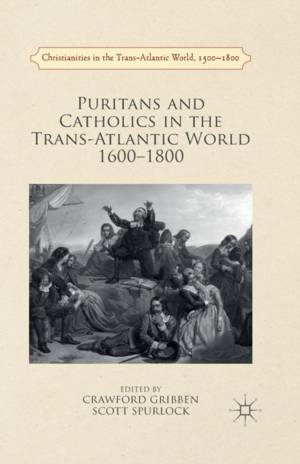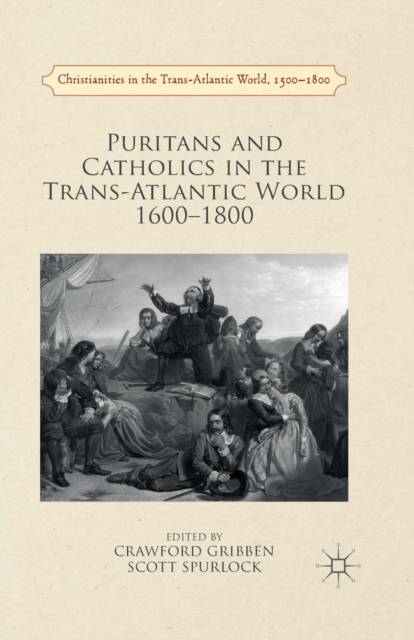
Je cadeautjes zeker op tijd in huis hebben voor de feestdagen? Kom langs in onze winkels en vind het perfecte geschenk!
- Afhalen na 1 uur in een winkel met voorraad
- Gratis thuislevering in België vanaf € 30
- Ruim aanbod met 7 miljoen producten
Je cadeautjes zeker op tijd in huis hebben voor de feestdagen? Kom langs in onze winkels en vind het perfecte geschenk!
- Afhalen na 1 uur in een winkel met voorraad
- Gratis thuislevering in België vanaf € 30
- Ruim aanbod met 7 miljoen producten
Zoeken
Puritans and Catholics in the Trans-Atlantic World 1600-1800
€ 50,45
+ 100 punten
Omschrijving
For many English puritans, the new world represented new opportunities for the reification of reformation, if not a site within which they might begin to experience the conditions of the millennium itself. For many Irish Catholics, by contrast, the new world became associated with the experience of defeat, forced transportation, indentured service, cultural and religious loss. And yet, as the chapters in this volume demonstrate, the Atlantic experience of puritans and Catholics could be much less bifurcated than some of the established scholarly narratives have suggested: puritans and Catholics could co-exist within the same trans-Atlantic families; Catholics could prosper, just as puritans could experience financial decline; and Catholics and puritans could adopt, and exchange, similar kinds of belief structures and practical arrangements, even to the extent of being mistaken for each other. This volume investigates the history of Puritans and Catholics in the Atlantic world, 1600-1800.
Specificaties
Betrokkenen
- Uitgeverij:
Inhoud
- Aantal bladzijden:
- 247
- Taal:
- Engels
- Reeks:
Eigenschappen
- Productcode (EAN):
- 9781349570225
- Verschijningsdatum:
- 10/12/2018
- Uitvoering:
- Paperback
- Formaat:
- Trade paperback (VS)
- Afmetingen:
- 140 mm x 216 mm
- Gewicht:
- 299 g

Alleen bij Standaard Boekhandel
+ 100 punten op je klantenkaart van Standaard Boekhandel
Beoordelingen
We publiceren alleen reviews die voldoen aan de voorwaarden voor reviews. Bekijk onze voorwaarden voor reviews.








